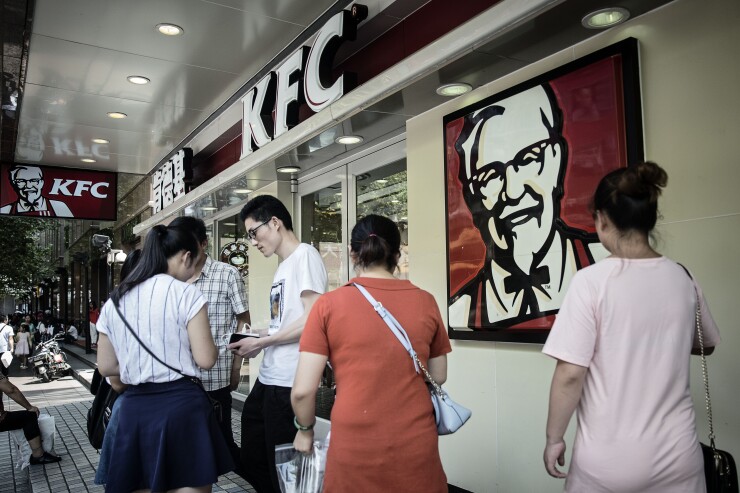Want unlimited access to top ideas and insights?
Welcome to the new PaymentsSource Morning Briefing, delivered daily. The information you need to start your day, including top headlines from PaymentsSource and around the Web:
Facial food recognition: Some companies are using facial recognition to determine how consumers want to pay for an order; search giant Baidu and KFC China are instead using the technology to recognize what they want to order. The companies are using software to examine each customer's age, gender and facial expression to guess what best to feed them, according to

The one true two-factor authentication: A second factor of authentication can take many forms — most commonly a keyfob or a phone app — but is any two-factor method better than another? According to Google, the best two-factor dongle may be a secure USB drive, reports
The growing cloud: Amazon Web Services is poised to get a big boost from small devices. The service is vital to the global retailer, which gets 10 percent of its revenue and more than 100 percent of its operating income from A.W.S.,
From the Web (powered by
SAP Blogs • Andre Smith
Earlier this month, Judy Cubiss warned us of the potential risks many industries face due to digitization. Online payment fraud was one of the problems touched on in the article. Due to the fact EMV
Seeking Alpha • Sniper Fund
Summary The secular shift from cash to electronic payments will continue. PayPal has a strong competitive position. Operating margins will be stable and may increase modestly. PayPal (PYPL) is the leading global digital wallet and a leader in mobile and e-commerce payments....
Tech in Asia • Steven Millward
It’s a free game that gives you money for nothing – so it’s little wonder that so many people in China are giving it a try this week on their phones. The game looks a lot like Pokemon Go, with a cartoony...
More from PaymentsSource
The large scale of the U.S. payment card market prompted many issuers to keep things simple by sticking with contact-only chip cards when they finally moved to support EMV, but now certain issuers are taking a new tack by adding Near Field Communication technology to their chip-enabled cards.
As regulators open the door to payment startups and other fintech firms applying for bank charters, what has already been a long journey to this point is only going to get more intense
Most consumers aren't rushing to throw out their plastic cards in favor of mobile wallets, so the banks and tech companies behind payment apps have to get creative. Here are some of the most noteworthy promotions.





